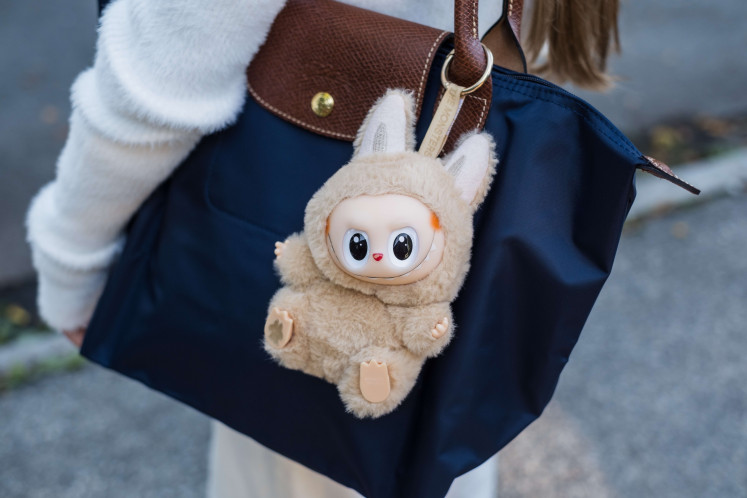Popular Reads
Top Results
Can't find what you're looking for?
View all search resultsPopular Reads
Top Results
Can't find what you're looking for?
View all search resultsSeven affordable ways to aid brain development in babies
Caring for a child, let alone multiple children, is no doubt expensive. However, investment does not always have to involve money.
Change text size
Gift Premium Articles
to Anyone
C
aring for a child, let alone multiple children, is no doubt expensive. However, investment does not always have to involve money. Healthline has compiled a list for parents who wish to personally hold mommy-classes and/or daddy-day-care on their own.
1. Be silly
Sticking out your tongue is not usually a sign of discipline, but when done as an activity with a baby it encourages tongue control. This is important for a child in learning how to eat properly and in the development of speech.
As a parent, sticking out your tongue can be considered a form of communication -- if your child responses by sticking their tongue out back at you, you’ve both done a great job!
2. Introduce 'tummy time'
Tummy time means allowing your infant to lie belly down. This enables your child to explore his or her surroundings and is a great way to help develop physical strength and coordination. Make it more fun by giving your baby toys to play with, and talk to him/her.
3. Give sensory stimulation
The director of the Touch Research Institute at the University of Miami Medical School, Tiffany Field, said to Parents that touch is one of the best-developed senses at birth. Babies are able to distinguish among different temperatures, textures, shapes and even weights of objects right away.
You can let your baby touch different textures by providing soft toys made of different fabrics, in various shapes, sizes and textures. Explain the fabrics to your baby in a simple way.
4. Large, medium, small
Providing different sizes of toys will help your baby begin to identify the differences between big, medium and small. You can initiate this with a game of sorting toys into groups of sizes.
5. Beethoven vs Queen
Language, cognitive, social and emotional development in a baby is supported by millions of neural pathways. These pathways can be stimulated by music. Exposing your child to different types of music that vary in tone and tempo is advised, according to a Music Together instructor from New Jersey, Brenda Berdugo Limaldi.
6. Let’s get musical
Singing to your baby is more than just parental instinct. It encourages more spontaneous sound and movement activity, hence helping your baby to learn. If your baby tries to sing, it is suggested that you imitate him or her, which gives positive reinforcement.
Play around with the tempo, volume, high notes and low notes. It also helps to bop or rock to the tunes of the song you’re singing.
Read also: Six negative effects of hyper-parenting
7. “Where’s the baby?”
It’s a good thing that no parent is as frightening to a baby as Diego the tiger in Ice Age, which means you can play with your baby with as easy a game as Peek-A-Boo. This seems like something even a baby would find ridiculous, but it is actually important for developing an understanding of object permanence. An object exists, even if you can’t see it, and that is one of the first things that is important to grasp as a developing child.
Playtime that includes interaction between baby and parents helps cultivate positive brain development.
Rebecca Parlakian, senior director of programs at Zero to Three says that the real value of playtime with children is that it helps them master their first and important tasks of the early years, namely building a strong relationship with their parents.
“It’s this strong, secure bond that children take with them as a model of relationships all their lives, and helps them build friendships, cooperate with others, work on a team and establish strong romantic relationships much later on,” said Parlakian. (acr/mut)











